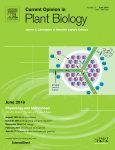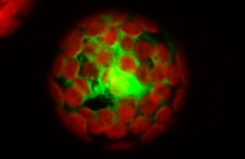News
New article published on regulation of gene expression in plants
The Spoel Research Group publishes a concise review paper in Current Opinion in Plant Biology on the role of complex interplay between post-translational modification in regulating gene expression.
 Edinburgh, 20 July 2016 - Reprogramming of gene expression in response to developmental changes and environmental inputs is regulated by a wide variety of transcription factors and cofactors. In plants, the stability of many transcriptional regulators is mediated by the ubiquitin-mediated proteasome. Recent reports suggest that additional post-translational modifications modulate the ubiquitination and thus stability of transcriptional regulators.
Edinburgh, 20 July 2016 - Reprogramming of gene expression in response to developmental changes and environmental inputs is regulated by a wide variety of transcription factors and cofactors. In plants, the stability of many transcriptional regulators is mediated by the ubiquitin-mediated proteasome. Recent reports suggest that additional post-translational modifications modulate the ubiquitination and thus stability of transcriptional regulators.
In an OPEN ACCESS Current Opinion in Plant Biology review paper, co-authors Michael Skelly, Lucas Frungillo, and Steven Spoel discuss how protein conjugation to the ubiquitin-like protein SUMO as well as thiol modification by nitric oxide to yield S-nitrosothiols, are emerging as key regulatory steps for governing protein ubiquitination in the nucleus. They propose that complex interplay between these different post-translational modifications may provide robust control mechanisms to fine tune developmental and stress-responsive gene expression programs.
See also: Current Opinion in Plant Biology

